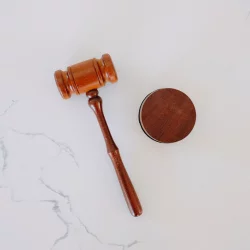How Prior DWI Convictions Impact Your Case
Facing a DWI charge is always serious, but the stakes are significantly higher for individuals with prior convictions. Repeat DWI offenses bring harsher penalties, more limited legal options, and significant challenges for mounting a defense. Understanding how prior convictions impact your case is crucial to navigating the legal system and protecting your future.
A repeat DWI offense can have life-altering consequences, including higher fines, mandatory jail time, and the possibility of a felony charge. For this reason, anyone with a DWI history must address their current charge thoughtfully and with the guidance of an experienced attorney.
Increased Penalties for Repeat Offenders
Penalties for DWI offenses are designed to escalate with each subsequent conviction. The more prior offenses you have, the harsher the consequences you are likely to face.
- Higher fines and longer jail time: While a first DWI conviction may result in relatively lenient penalties, repeat offenses often lead to steeper fines, extended jail sentences, and more severe license suspensions. In North Carolina, a second DWI can result in penalties up to $2,000 and a jail sentence of up to two years, while a third offense could lead to even longer incarceration.
- Mandatory minimum sentences: Many states, including North Carolina, impose mandatory minimum sentences for repeat offenders. This removes the possibility of reduced penalties or probation for second or third offenses.
- Longer probation periods: Repeat offenders may also face stricter probation requirements, such as mandatory sobriety checks or participation in substance abuse programs, making compliance more challenging and costly.
Longer Lookback Periods and Their Impact
A critical factor in DWI cases is the “lookback period,” which determines how long prior convictions remain relevant.
- What is a lookback period? A lookback period is the timeframe during which previous DWI convictions can be considered when imposing penalties for a new offense.
- How lookback periods affect penalties: North Carolina has a seven-year lookback period for most DWI offenses but imposes a longer lookback period for felony DWI charges. This means that if a repeat offense occurs within this timeframe, the penalties are significantly harsher.
- State-specific differences: Some states have indefinite lookback periods, meaning any prior conviction—regardless of how long ago it occurred—can be used to enhance current penalties.
Higher Risk of Felony Charges
One of the most severe consequences of repeat DWI offenses is the increased likelihood of facing felony charges.
- Understanding felony thresholds: In North Carolina, while a first or second DWI is typically a misdemeanor, a third offense within 10 years can be charged as a felony, especially if aggravating factors such as high blood alcohol concentration or prior convictions exist.
- Consequences of a felony DWI: Felony DWI convictions carry severe penalties, including significant prison time, loss of civil rights such as voting and firearm ownership, and a permanent criminal record.
- Long-term effects: A felony DWI conviction can impact your life far beyond the courtroom. It may hinder your ability to secure housing, find employment, or access financial opportunities.
Limited Options for Defense and Plea Bargains
Repeat offenders often face more significant challenges when it comes to negotiating plea deals or building a defense.
- Stricter limitations on plea deals: Prosecutors are typically less inclined to offer favorable plea deals to repeat offenders, as they are seen as a greater risk to public safety.
- Challenges in mounting a defense: Prior convictions can be introduced as evidence to establish a pattern of behavior, making it harder to contest a new charge or present mitigating circumstances.
- Alternative sentencing programs off the table: Diversion programs and rehabilitation opportunities, which are sometimes available to first-time offenders, may not be offered to those with prior convictions.
Enhanced Probation and Monitoring Requirements
Repeat offenders often face stricter probation conditions and additional monitoring measures.
- Ignition interlock devices: Individuals convicted of multiple DWIs are often required to install ignition interlock devices, which prevent a vehicle from starting if alcohol is detected on the driver’s breath.
- Frequent alcohol and drug testing: Courts may mandate regular drug and alcohol testing, including random tests or continuous monitoring through ankle bracelets or portable breathalyzers.
- Mandatory substance abuse treatment: Repeat offenders are frequently required to complete intensive substance abuse programs or counseling as part of their probation, adding another layer of accountability and expense.
Why Legal Representation Is Crucial for Repeat DWI Offenders
Prior DWI convictions significantly increase the consequences of a new charge, from heightened penalties and stricter probation requirements to the possibility of felony charges. Navigating these challenges requires careful planning and informed decision-making.
If you face a repeat DWI charge, seeking experienced legal representation is essential. A knowledgeable DWI attorney can help you understand the charges against you, identify possible defenses, and work to minimize the impact on your life. With the proper guidance, you can make informed choices and pursue the best possible outcome for your case.
Addressing a DWI charge thoughtfully can make all the difference, especially when prior convictions are involved. Taking swift, informed action can help protect your rights, future, and freedom.
More to Read:
Previous Posts:



